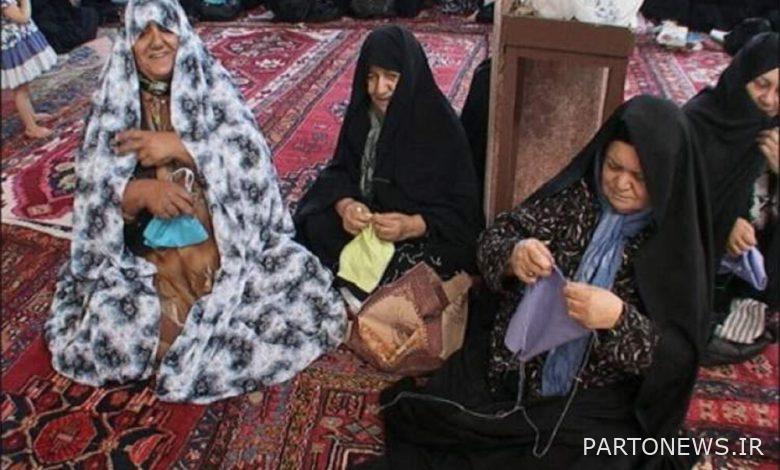Eating water that heals/ Women’s bag embroidery on Ibn Muljam’s Night of Retribution – Mehr News Agency | Iran and world’s news

According to Mehr reporter, “Mirror of Kindreds” is the title of a series of radio shows narrated and directed by Mehrdad Eshghian, which is a journey into the world of Ramadan rituals in Iran. This is a 30-part collection of the productions of the General Directorate of Performing Arts of Radio, which is published in Mehr News Agency with the suggestion and support of Ayub Aghakhani.
Mandana Aslani, Gholamhasan Tassiri, Mandana Mohseni, Mohammad Yeganeh, Mojtaba Tabatabai, Mohammad Agha Mohammadi They are present as actors in this series and other actors of the radio series “Aineh Obeh” are author: Soheila Khodadadi, researcher: Nasser. Malayan, Effector: Narges Musipour, sound engineers: Pirouz Sadraei and Mohsen Javadi, producer and editor: Nahid Gudarzi.
The 22nd episode of “Mirror of Nations” with a duration of 28 minutes and 24 seconds deals with the rituals of the people of this city during the holy month of Ramadan with a trip to Urmia.
We start the 22nd day of the “Mirror of Nations” journey as follows:
“Sit on your lips and watch the passing of life, we have heard this poem many times and we read But less before came That is the meaning and concept that Let’s be careful. but one sometimes that we feel the passage of life with all our heart, this verse willy-nilly our mind flips It seems like it was just yesterday that the month of Ramadan started and I took myself for a ritual trip to big cities and villages small I prepared Iran. We have reached the twenty-second day of this holy month. for sure I have you I agree with this and all of this acceleration Life Mothrin. Anyway, today is the same other From Rosai God is good and I still am one My passenger one the passenger who still Along it’s a way who has chosen
On the 22nd day of the trip, we are still with “Ali” and his mother in the city of Urmia to learn about the rituals of the people of this city and West Azarbaijan province, as well as a ritual of the Lamard people of Fars province during the holy month of Ramadan.
Ali’s mother breaks the fast every year on the 22nd day of Ramadan. In the holy month of Ramadan, the people of Urmia break the fast every day and invite the needy, the poor, and the needy to break the fast, and the family and the guests eat the fast together at the same table.
The ritual of benevolence and charity reaches its peak in the nights of Qadr among the people of Urmia and West Azerbaijan.
In this section, the narrator narrates a memory of “Mr. Mahmoudi” from his friends about the rituals of the Lamard people of Fars province during the nights of Qadr. In Lamard, all the people recite prayers and supplications during the nights of Qadr, and when they recite Joshan Kabir as a group, when they say “Al Ghouth Al GhouthThey arrive, the attendees stand and say their rosary far A Chinese bowl full of water they rotate Some people also tie a thin string from the right side after each line of the prayer when they reach the name of God, until the end of the prayer, the number of these knots It reaches 100 numbers. Then they sprinkle the water from the bowl on their heads and faces as a blessing or eat it. Some people take that water home with the intention of healing the sick a slave And they give it to the patient. Lamerdi consider 100 knotted thread or string useful to ward off some calamities.
AshYarma soup“Tarkhina” soup is one of the traditional dishes of Urmia people for the holy month of Ramadan.
Villagers of West Azerbaijan on the twenty-seventh night of Ramadan, who believe that it is the night of retribution son my friend For this reason, they hold the custom of “embroidering bags”. Women during sewing bag to bagson my friendIt is known, with every needle that sticks in the bag once To son my friend They curse
On the evening of the last day of Ramadan, many Azeri families visit the graves and offer vows. Children have a share in Suhoor on this day and they eat Suhoor next to the elders and when Noon It is possible to eat an early iftar in this wayplate They say “Aruji”.
In the old days, on the night of the last month of Ramadan, the mother of the house would fill a bowl with wheat, and everyone in the house would touch it.
On the day of Eid al-Fitr, the people of Urmia go to see and visit together, especially the house of “Nouid”. I see They are going to the home of a new Russian who is celebrating the first Eid Fitrash He spends his time in his wife’s house, or in the house where the daughter is married, or in a family that has recently lost a loved one.

